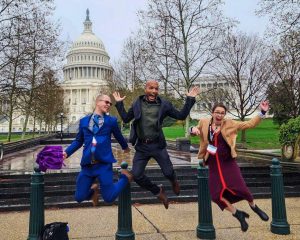 Wins:
Wins:
Boulder County Ballot Issue 1B extended a 0.185% sales tax that supports affordable housing. More than 71% of votes supported the item at the ballot box. City of Boulder officials estimate that 1B will generate approximately $300 million by 2035, nearly doubling the funds currently available for affordable housing projects. Boulder lacks over 10,000 housing units, particularly for households earning less than 80% of the area median income ($80,000).
Ballot Measure 7A, which lets the Regional Transportation District (RTD) retain all of its sales tax revenue, passed with a 3 to 1 margin. This additional revenue will let RTD increase service frequency and expand its service network. Because affordable housing residents are less likely to own cars, and more likely to rely on buses and trains in their daily commutes this leverages new opportunities realized by the passage of recent state legislation to increase density and aff. housing around transit nodes.
Losses:
Adams County Ballot Measure 1A would have increased sales taxes by 0.15% to generate $22 million. Maiker Housing Partners, the Adams County housing authority, would have used these funds to build affordable housing without reliance on competitive state and federal funding. However, 70% of voters rejected the initiative.
Denver’s Ballot Measure 2R would have increased sales taxes by 0.5% to raise $100 million. These funds would have supported rental housing vouchers, utility assistance, and income restricted homeownership opportunities. However, the measure failed by a narrow margin of 1 percentage point, with 49.45% in favor and 50.55% against.
Looking Ahead:
The mixed ballot initiative outcomes illustrated above show that voter appetite for affordable housing related tax increases vary widely across the region, and voters are paying more attention than ever before on the type of housing being promoted in any given initiative. While Boulder voters widely supported extending an existing sales tax, Adams County and Denver voters rejected new sales taxes by varying margins. This is particularly notable in Denver, where voters previously passed new tax measures with few qualms.
While Denver voters agree affordable housing is a problem, unfortunately some feel that regulatory changes alone can solve the issue. When Mayor Johnston first announced the measure, City Councilmembers criticized the lack of details in the proposal, extensively amending the measure.
Future campaigns must be designed with greater stakeholder input and grassroots outreach at earlier stages. Policymakers must guarantee that new taxes to support housing will serve those with the greatest housing challenges, and dovetail with state level legislation.
Given the new political climate, local funding constraints, and the expiration of federal ARPA dollars (widely relied on for affordable housing spending), NDC will pursue the following strategies in 2025:
- Optimize implementation of state policy wins from the 2024 state legislative session,
- Identify new opportunities for affordable housing support
- Deepen local policy engagement, and
- Help municipalities pursue their housing priorities as ARPA funds run out by:
- Pursuing affordable zoning incentives,
- Maximizing the capabilities of the public housing authorities, and
- Supporting affordable homeowner opportunities through development review changes.
